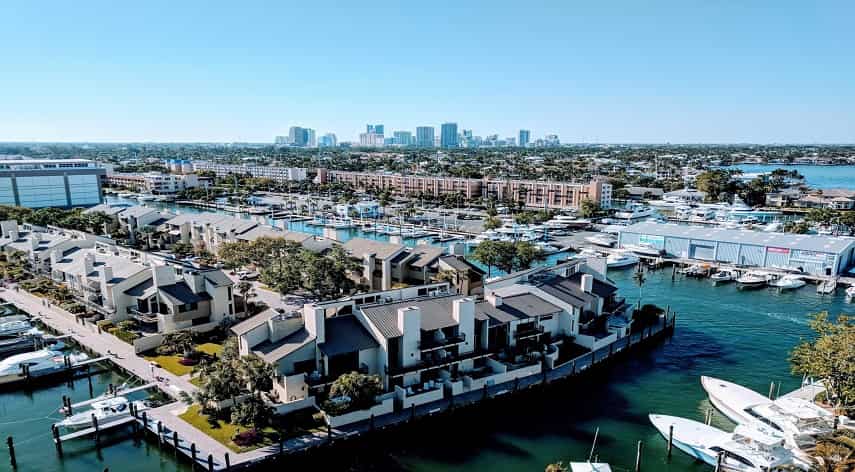How Inflation Affects Real Estate Investments

Inflation refers to the continuous rise in the cost of goods and services. This phenomenon has a far-reaching impact on various investments, including real estate, as it signals a decrease in the value of a currency over time.
While inflation can seem abstract, it has real-world effects on your wealth and standard of living. This article explains the influence of inflation on real estate and how to measure it accurately.
Table of Contents
ToggleDefinition of Inflation
Inflation refers to a widespread rise in the cost of goods and services resulting from an excess of currency in circulation that puts pressure on the availability of goods, ultimately causing prices to escalate.
Inflation also means that your dollars will buy less than they used to–so if you have $100 today, it won’t be worth as much tomorrow because that same amount will buy less stuff than it did yesterday.
To understand what to invest in during inflation, you must understand how inflation works and how it impacts your investments. Inflation can be described as a persistent and long-term increase in the cost of services and goods.
It manifests as a currency devaluation and can have far-reaching effects, from eroding purchasing power to disrupting economic stability.
How Inflation Affects Real Estate Investments
Inflation can be measured as a percentage change in the price level or changes in an index like the Consumer Price Index (CPI).
Inflation affects real estate investments because it reduces your return on investment. Still, it also can increase your investment’s value (if you’re buying at a discount) or decrease its value (if you paid too much).
Why is inflation bad for real estate?
Inflation is bad for real estate investments because it makes buying, selling, and renting a home harder. That’s because inflation means that the value of money decreases over time as prices rise.
For example, if you purchase a house today for $200k and then sell it in 20 years with 4% inflation each year, then that same house would only be worth about $200k in today’s dollars when you sold it–even though your original purchase price was much higher!
This means that if you’re trying to buy or sell a house today while there are high inflation rates of around 1-2%. Then, as inflation rises and interest rates go up while wages remain low, buyers’ purchasing power will dwindle.
The effect of Inflation on Real Estate Rentals
Inflation directly affects the rental market as it reduces the purchasing power of income. This means that tenants have less disposable income with which to pay rent.
In addition, inflation increases the cost of real estate. If you’re buying or selling property (or even if you’re planning), this can be an issue because rising prices mean higher costs for everyone involved–including yourself!
Inflation increases mortgage payments over time by increasing interest rates: Suppose interest rates rise due to inflationary pressures, and your mortgage payment is fixed at 5% per year until maturity.
In that case, each year’s payment will be made primarily from principal rather than interest because most bonds now pay higher coupon rates than they did historically.
This means fewer dollars go toward paying off the principal each month compared to previous decades when bonds were more frequently issued at lower coupon rates.
Inflation affects everything!
Inflation is a phenomenon that affects every aspect of our lives. It has the power to change the way we live, work, and invest in real estate. Inflation can be suitable for some investors and bad for others, depending on their investment strategy.
You should always be aware of inflationary trends to make informed decisions about how best to handle them when investing in real estate.
Pankaj Majumder, a seasoned Civil Engineer, combines technical expertise with a passion for innovative infrastructure solutions. With a strong academic background and diverse project experience, he excels in creating sustainable and resilient structures that shape the future of urban development.
Recommended For You
Spread the loveThe United Arab Emirates’ central city, Abu Dhabi, has a flourishing real estate market with plenty of options
Spread the loveHave you ever wondered what skills you need to succeed in commercial real estate jobs? Well, you’re in
Spread the loveIn today’s digital age, marketing rental properties is not just about placing a sign in the yard or





